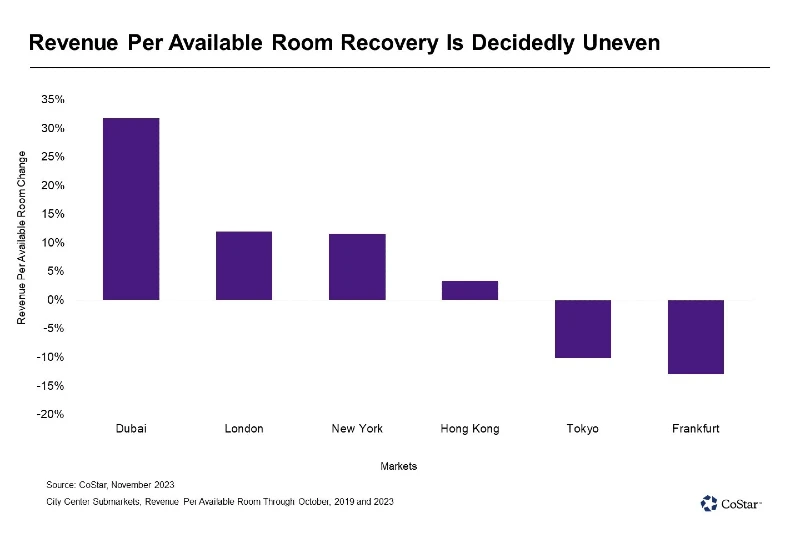
Dec 2, 2023
StateServ, a national provider of durable medical equipment, has secured a five-year lease for a 14,100 square feet space at the Alico Business Park in Fort Myers, Florida. This expansion is part of the company’s operations in 14 states, with a total of 50 distribution centers. The distribution center at 16311 Domestic Ave., built in 2020 and spanning 13.28 acres, is also home to other tenants such as Clevertech and retailer The Coldest Water. The Alico Business Park, comprising four industrial properties totaling 174,600 square feet, hosts a diverse range of tenants including United Way of Lee County and Matter Brothers Furniture. The lease deal was facilitated by Shawn Stoneburner of Cushman & Wakefield representing the owner, and Jeffrey Bucker of Lee & Associates representing StateServ.

Nov 28, 2023
Financial centers around the world are grappling with uneven recovery in the hotel industry. These centers rely heavily on corporate travel, and the closure of offices in 2020 disrupted hotel occupancy. Even though people are back in offices, downtown hotel occupancy in major financial hubs like New York and Tokyo is still below pre-2019 levels. Factors like new hotels and the slow return to offices are contributing to this. While some cities like Dubai are bouncing back, challenges in corporate travel demand and economic issues in certain countries may slow down the overall hotel recovery.

Nov 18, 2023
In response to the housing needs of the unhoused, refugees, and migrants, over 16,000 hotel rooms in New York City have been repurposed, with 140 hotels no longer available for travelers as of October. Various city and county authorities have secured these accommodations through long-term leases, reducing future hotel room supply. The impact is particularly noticeable in different market segments, with a concentration of projects in major areas like midtown, Queens/Brooklyn, and JFK/Jamaica. The transformation of these hotels, most of which were midscale or economy properties, may have a lasting effect on New York City’s hotel performance, potentially leading to higher average daily rates in the future. Despite ongoing construction, the city’s supply pipeline for new hotels is expected to be limited due to recent zoning and development regulations.

Nov 17, 2023
Amazon has vacated over 14 million square feet of distribution space in the U.S. in the past 16 months, constituting about 3% of its U.S. logistics footprint. Most closures occurred in the latter half of 2022 as Amazon focused on shutting down older, less efficient facilities. The company has recently increased its sublease offerings, with the unique aspect being that more of these involve opportunities through 2030 and beyond in larger, newly built distribution properties. Despite these closures, Amazon’s total U.S. logistics square footage appears to remain stable in 2023, with new leases offsetting the volume of closures.

Nov 16, 2023
Consumer sentiment in the U.S. declined for the fourth consecutive month, with the University of Michigan’s sentiment index dropping to 60.4 in November, down from 63.8 in October. Concerns about high interest rates, inflation, and global political unrest contributed to the decline, particularly affecting lower-income and younger consumers. Despite retailers adding 3% more jobs in October compared to the previous year in anticipation of the holiday season, transportation and warehousing jobs fell by 27%. Additionally, while initial claims for unemployment insurance remained low at 217,000 for the week ending Nov. 4, continuing claims increased for the seventh consecutive week, suggesting challenges in finding new employment for some individuals.





